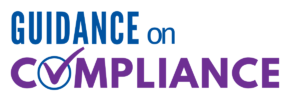The Patient-Driven Payment Model (PDPM) is the reimbursement methodology for Medicare Part A for Skilled Nursing Facilities (SNFs) since October 1, 2019. Information in the PDPM International Classification of Diseases, Tenth Edition (ICD-10) Mappings continues to present challenges to MDS Coordinators coding PDPM requirements. Not all ICD-10 codes, when used as the primary diagnosis in the Minimum Data Set (MDS) item I0020B, would automatically be categorized into the PDPM Clinical Categories as one part of the reimbursement calculation. A valid ICD-10 code does not equate to a PDPM Clinical Category because some ICD-10 codes are listed as Return to Provider (RTP) in the PDPM ICD-10 Mapping files.
On July 29, 2021, the Centers for Medicare & Medicaid Services (CMS) released the SNF PPS Final Rule for Fiscal Year (FY) 2022. One of the updates includes changes in the ICD-10 code PDPM Mappings. CMS indicated in the final rule that the changes are “In response to stakeholder feedback and to improve consistency between the ICD-10 code mappings and current ICD-10 guidelines.” For FY 2022, some diagnosis codes that are currently RTP will map to a PDPM Clinical Category and vice versa or cause a modification to the clinical category.
The table below outlines the changes as outlined in the SNF PPS Final Rule for Fiscal Year (FY) 2022:
| ICD-10-CM Code | Description | FY 2021 Default Clinical Category | FY 2022 Default Clinical Category |
| D57.42 | Sickle-cell thalassemia beta zero without crisis | Medical Management | Return to Provider |
| D57.44 | Sickle-cell thalassemia beta plus without crisis | Medical Management | Return to Provider |
| G93.1 | Anoxic brain damage, not elsewhere classified | Return to Provider | Acute Neurologic |
| K20.81 | Other esophagitis with bleeding | Return to Provider | Medical Management |
| K20.91 | Esophagitis, unspecified with bleeding | Return to Provider | Medical Management |
| K21.01 | Gastro-esophageal reflux disease with esophagitis with bleeding | Return to Provider | Medical Management |
| M35.81 | Multisystem inflammatory syndrome | Non-Surgical Orthopedic/Musculoskeletal | Medical Management |
| P91.821 | Neonatal cerebral infarction, right side of brain | Return to Provider | Acute Neurologic |
| P91.822 | Neonatal cerebral infarction, left side of brain | Return to Provider | Acute Neurologic |
| P91.823 | Neonatal cerebral infarction, bilateral | Return to Provider | Acute Neurologic |
| U070 | Vaping-related disorder | Return to Provider | Pulmonary |
The Centers for Disease Control and Prevention (CDC) had ICD-10 additions to support conditions resulting from COVID-19, which went into effect on January 1, 2021. With the complications of COVID-19, the majority of these condition codes remain RTP for FY 2022. See the table below.
| ICD-10-CM Code | Description | FY 2021 Default Clinical Category | FY 2022 Default Clinical Category |
| M35.81 | Multisystem inflammatory syndrome | Non-Surgical Orthopedic/Musculoskeletal | Medical Management |
| M35.89 | Other specified systemic involvement of connective tissue | Non-Surgical Orthopedic/Musculoskeletal | Non-Surgical Orthopedic/Musculoskeletal |
| J12.82 | Pneumonia due to Coronavirus disease (COVID-19) | Return to Provider | Return to Provider |
| Z11.52 | Encounter for screening for COVID-19 | Return to Provider | Return to Provider |
| Z20.822 | Contact with and (suspected) exposure to COVID-19 | Return to Provider | Return to Provider |
| Z86.16 | Personal history of COVID-19 | Return to Provider | Return to Provider |
Note that RTP codes can be listed as additional active diagnoses in MDS item I8000 but cannot be used as the primary diagnosis. A best practice is to routinely check the CMS PDPM website for updates.
How Can LW Consulting, Inc. Help?
LW Consulting, Inc. offers a comprehensive range of services that can help your organization’s compliance, including:
- Reviewing pre-bill MDS audit reviews to identify coding variances that can be corrected prior to the MDS completion, for both LTC and Short Stay MDSs.
- Conducting PDPM accuracy audits to identify opportunities for systems changes, training and education, and IDT communication.
- Performing annual MDS audits as part of the compliance program external review requirements.
- Reviewing policies and procedures, meeting format, education needs, and system assessments.
- Developing response to appeals and denials, trend analysis, and risk assessments.

